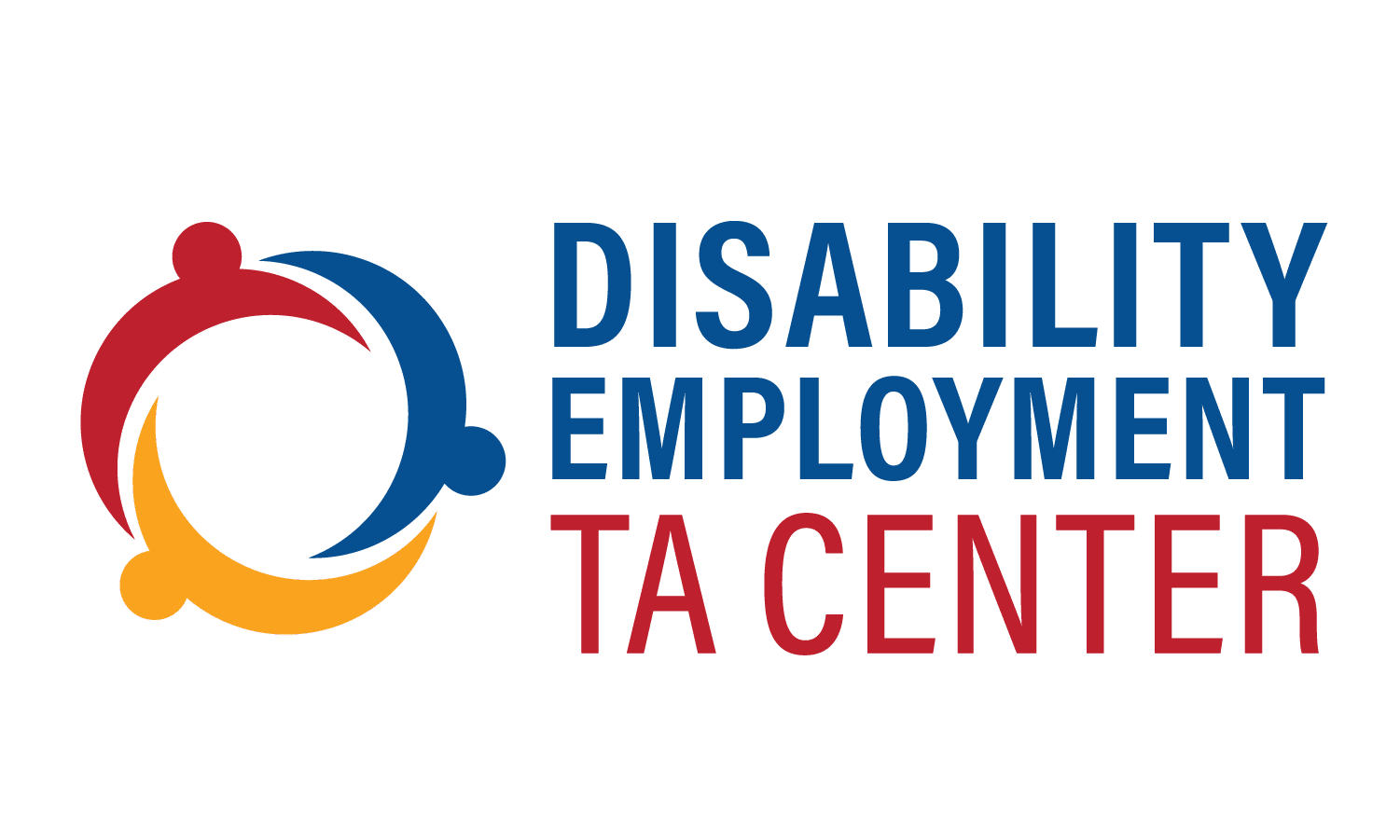DETAC Announces New Results in Systems Excellence (RISE) Peer e-Learning Community: You Can’t Spell BuILding Community Without IL
Through the Rehabilitation Act of 1973, as amended, Centers for Independent Living play a pivotal role in assisting individuals with disabilities in every aspect of community living (but not limited to) including self-direction of services and equal access to them, peer advocacy, support, and empowerment, to support the full integration of people with disabilities in mainstream society. One of the most crucial elements of supporting individuals with disabilities is assuring that they have employment opportunities in the community at commensurate wages alongside their non-disabled counterparts. Fostering the process of Discovery to enable and empower a person to identify strengths, talents, and conditions for employment is vital to ensuring proper job matches to sustain employment and advance. However, resources are scarce, and programs are limited so capacity is needed in best practices to support persons with disabilities in competitive, integrated employment. Also important is knowing who to connect with and what partnerships are crucial to advancing CIE for people with disabilities.
The purpose of this RISE e-Learning Community is to bring Centers for Independent Living together that are working on employment goals with consumers. These sessions will blend skill building, peer support, and resource sharing. APRIL, along with guests will facilitate peer conversations that explore community outreach, program development, and participant engagement. In cohort 1, we will focus on programs that are already running and work together to expand outcomes and troubleshoot barriers. In cohort 2, we will discuss strategies for starting a program to increase employment opportunities for consumers. Successful participants will be encouraged to engage with the questions posed, be willing to share successes and struggles, and ready to have some fun.
SPACE IS LIMITED, SO APPLY NOW at:
https://forms.gle/Tjnomo6pGCCG6bZG9
APPLICATIONS DUE: June 30, 2023
COHORT 1 LAUNCH MEETING: July 10, 2023
COHORT 2 LAUNCH MEETING: August 14, 2023
2:00PM-3:00PM/ET
Session Structure
There will be two separate cohorts: one for CILs that work on employment (Cohort 1) and another for CILs that are new to employment but are interested in learning about it (Cohort 2).
Virtual Classes: 3 sessions per cohort
Cohort 1 (Employment CILs) Session Dates:
- Launch meeting/session one: July 10 from 2:00-3:00PM/ET
- Session Two: July 17 from 2:00-3:00PM/ET
- Session Three: July 31 from 2:00-3:00PM/ET
Cohort 2 (Non-Employment CILs) Session Dates:
- Launch meeting/session one: August 14 from 2:00-3:00PM/ET
- Session Two: August 21 from 2:00-3:00PM/ET
- Session Three: August 28 from 2:00-3:00PM/ET
Facilitator: Mary Willard and Sierra Royster from the Association of Programs for Rural Independent Living
Session Links: Zoom Meeting links will be provided once grantees have been accepted into the e-Learning Community. The contact person(s) listed in the application will be notified via email. If you need an accommodation to participate in the cohort, please note in the application or send an email to us at the Gmail provided below. Accommodations for the eLearning Community will be provided based upon request. The links will be sent from the DETACs Gmail Account, AoDEmploymentTA@Gmail.com.
Topics include:
- You can’t Spell BuILding Community without IL! outreach and building relationships, positioning yourself as a community hub where schools, colleges, VR, community employment resources, funding opportunities reach out to you!
- They are HERE! So now what? What skills do you teach to get ready for employment? What creative programs are you running to build volunteer or work experience?
- Learning with Style: how do you keep people engaged in person? Online? What are some different tools you use to hit different learning styles or levels?
About the Facilitators:
Mary Willard has been the Director of Training and Technical Assistance for APRIL (Association of Programs for Rural Independent Living) since 2014. In her role, she helps support CILS and SILCs to serve people with disabilities to the best of their abilities through peer support opportunities, training opportunities, and through her partnerships on projects with RTC: Rural University of Montana and other allied organizations. Her favorite part of her job is helping to identify needs in the community and offering platforms and opportunities to elevate all your voices in the field to help find solutions. With Community, we are Stronger! Previously she worked at Summit Independent Living Center as the Peer Coordinator, where she worked on curriculums for youth with disabilities and creating programming for youth, as well as running the peer support program training, supervising, and creating opportunities for peer supporters. She was an APRIL youth Peer Mentor for seven years, assisting several CILs across the country to start, trouble shoot, or grow their youth programs, as well as helping to plan and execute the APRIL youth conference as a volunteer. Mary received her Master’s in Social Work in 2014, during which time she also worked at the Rural Institute on Disability and Research as a Student Research Associate. She spent four years on the executive committee of the Montana SILC, two of which were spent as the chair.
Sierra Royster works at the Association of Programs for Rural Independent Living as the Director of Innovation. She works with other national disability organizations to develop training material and new opportunities for Centers for Independent Living and Statewide Independent Living Councils. Having come from a Center for Independent Living herself, she understands the importance of creating opportunities for CILs to create connections and peer support to make a large effect on their local communities. She uses this experience to identify gaps and needs within independent living and create programs or services to address them. She strives through all aspects of her position to ensure that rural areas are included in disability services, rights, and programs to create a larger outcome in the community.

